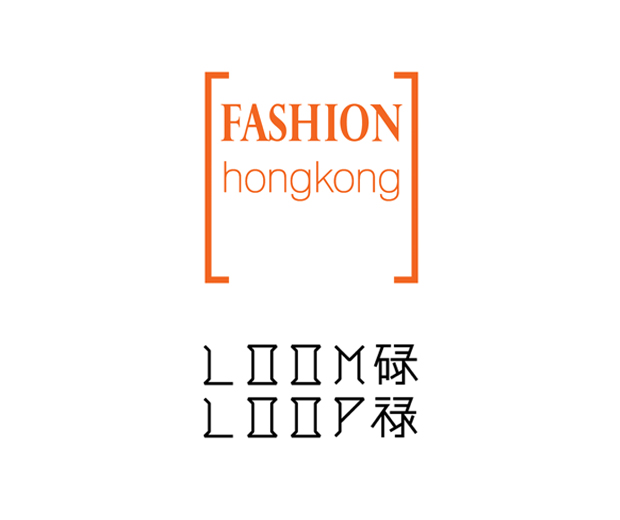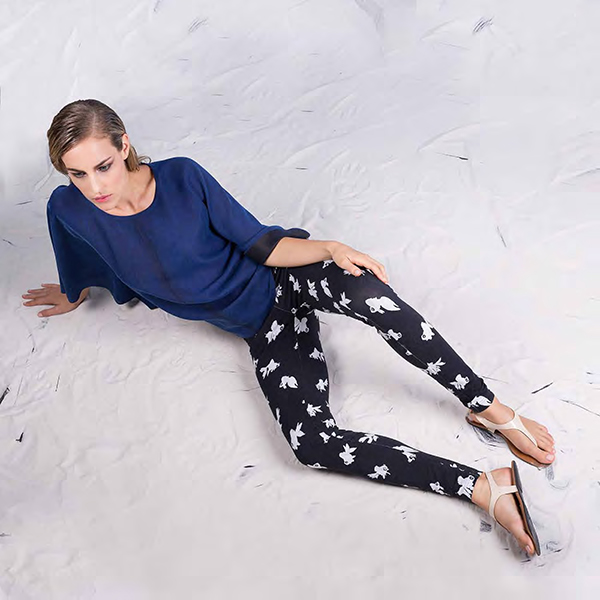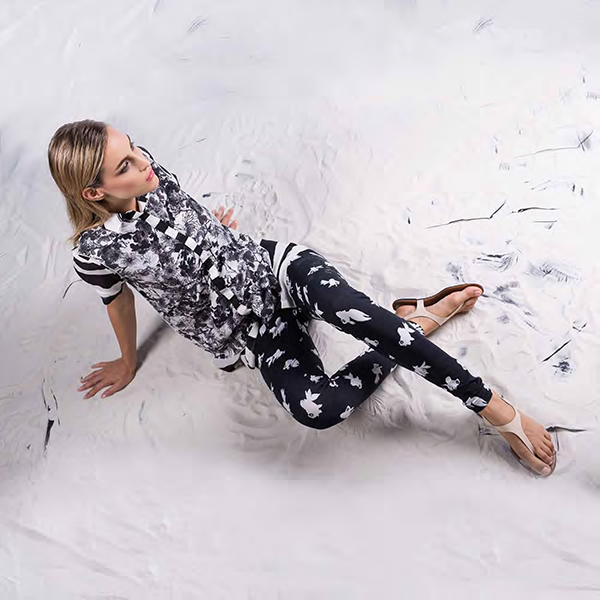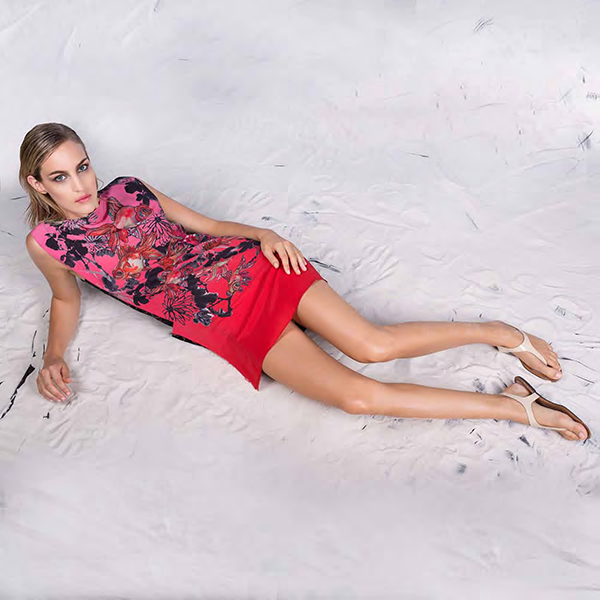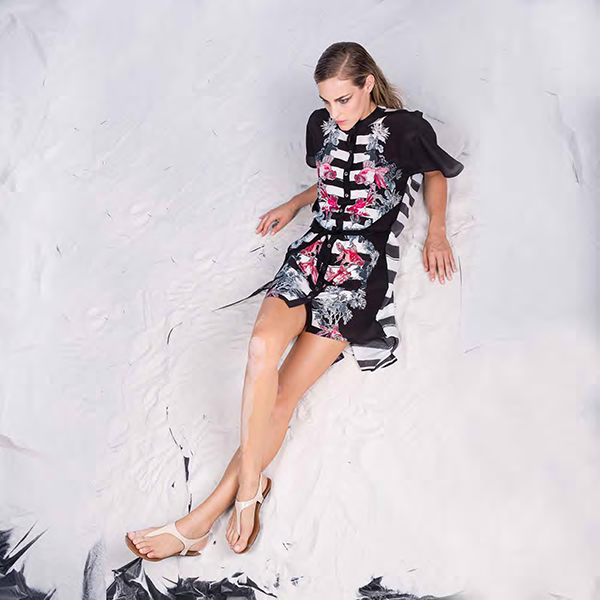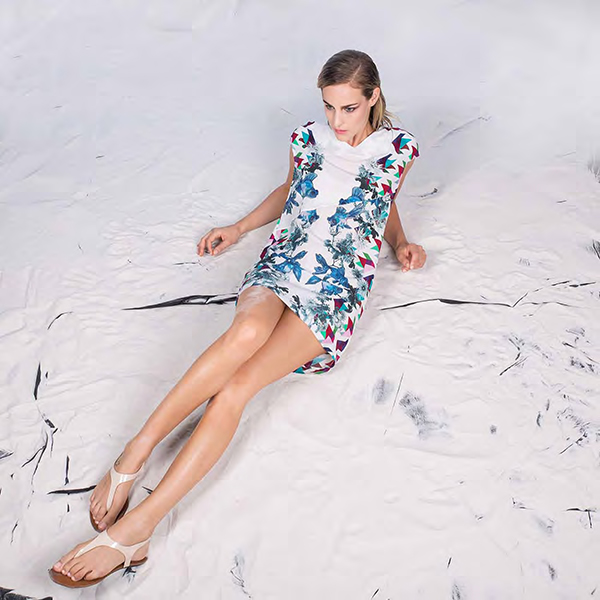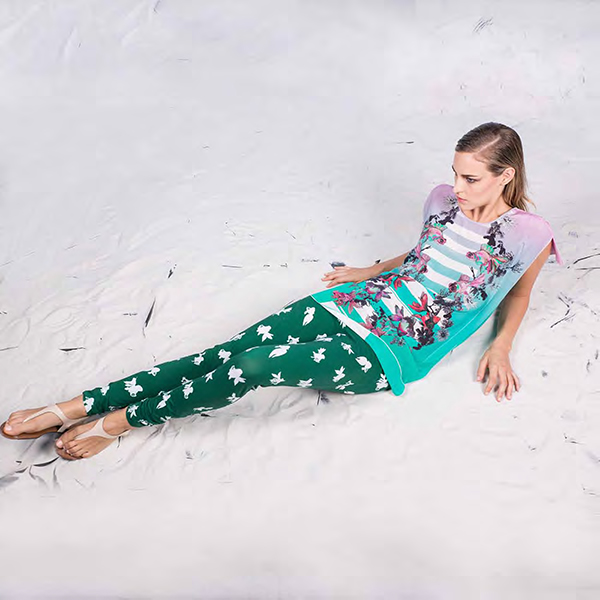Newcomer brand questionnaire | Loom Loop
Loom Loop
Designer
Polly Ho
Category
Women’s / Clothing, Accessories & Others
Brand information / About the designer
―What inspired you to become a fashion designer? Describe developments leading up to the brand launch.
I started my fashion career at the age of 5, drawing princess figures with different outfits was one of my favorite playtime activity. By the age of 7, I started draping blankets as dresses and setting up my own fashion store in my bedroom. My playtime activity remain unchanged, still drawing figures in different outfits, but instead I’m drawing it in a workshop at the Hong Kong Polytechnic University (PolyU). 4 years of handcrafting with a break at the University of Central England, I enrolled myself in their exchange program. I saw it as a break. Not exagerrating, living in the UK at that time was a breeze and I thoroughly enjoyed my time there. It was all down to the hardcore training at PolyU. During that break, I worked in the misa harada workshop and travelled extensively in Europe to broaden my horizon as a designer.
After working in the manufactory trading retail areas in Hong Kong as a fashion desigener for several years, I thought it was about time to do something of my own. I quit my job and started up Loom Loop in 2014.
Our vision is to protect the cultural heritage, to raise sustainable fashion.
―What is the brand’s concept? What do you want to communicate through fashion designing?
In weaving, the basic purpose of any loom is to hold the warp threads. In knitting, the basic structure is to create multiple loops of yarn. Loom Loop is the most basic thing in textile and knitting. We focus on materials and try to add value on them to make our collection more elegant and valuable. The use of deluxe Canton silk involving high degree of craftsmanship with the more-than-30-time processing by experts is also the essence of our collection.
Canton silk’s dyeing technique has been around for more than 300 years. The production process is quite complicated. First you hand-dye the fabric by using a plant called “yum”, then you dry the fabric on the grasses. After repeating this procedure, you take the mud from the river and put it on one side so you could see that it’s darker and shinier. The mud strengthens the fabric. We find this fabric-dyeing process traditional and interesting. There are two types of this fabric, one is in plain weave and the other one that we emphasize is the jacquard fabric. The method of weaving the jacquard fabric has not been compromised, the old traditional wooden machine is still being used to weave it. It is the “luó” of “líng luó chóu duàn”. This weaving technique makes the fabric even more breathable and oozes luxury in a subtle wayWe are developing our own jacquard pattern with the technician.
―What is your source of inspiration in creating fashion? What is your process of developing a design concept?
My inspiration comes from daily life. I like to watch movies, listen to music, visit art galleries and museums. I usually come up with a theme for my next collection and would conduct research to see if it’s viable. When I was designing for this season’s collection, a friend of mine asked if I have seen the children story “The Happy Prince”. I remembered vaguely, so I went through the story again, and developed my collection. I have started to sketch the print, and think about what’s best in terms of silhouette and details for the entire collection.
―Who are your current stockists (areas, retail formats, etc.)? Describe the typical followers of your brand.
We currently have our own boutique at the designer and lifestyle hub – PMQ in Hong Kong. A Parisian boutique – Onza Boutique Paris is also carrying our collections. We also have a strong presence on the e-tailing community, stocking in various online stores such as Gnossem.com (Singapore), notjustalabel.com (UK), pinkoi.com (Taiwan), Zalora.com.hk (HK) and Noveltylane.com (HK).
Our followers are , sophisticated and are looking for something with quality that they can’t find on the streets.
―Which brands, designers, styles and cultures have had the most impact on your fashion designing, and why?
Coco Chanel is one of my favourite designers, she was intelligent, sophisticated and had a great attitude towards fashion. Dries Van Noten is another designer that I admire. I like how both of these designers play with the East meets West designs. Dries Van Noten uses a lot of prints that inspired from the East, but all his cutting and silhouette are from the West. Growing up in Hong Kong, I was lucky to have a chance to further my design studies in the UK. Even after all these years, I continued to wonder why the culture of East and West can seem so different, but in fact their concepts in fashion can be quite similar. After my study in the UK, I understood that the East and West’s cultural fundaments are quite similar. They both want to show people’s identity through fashion. However, the former tend to keep their body shape hidden while the latter tend to show off more about their body. For instance, Yohji Yamamoto is famous of his loose, multi-layered designs to blur the contours of the body during 80s. So, for my brand, I would like to interpret this “East meets West” concept through fabrics, prints, silhouettes and details. Canton Silk fabric and the production process are the beginning of our “East” concept; and part of our own prints, silhouette, and details are “East” , while part of them are “West” concept. Combining both elements together, it becomes our collection.
―Do you have any aspirations or mottoes or quotes that inspires you?
“Fashion is not something that exists in dresses only. Fashion is in the sky, in the street, fashion has to do with ideas, the way we live, what is happening.” – Coco Chanel
About 2016 S/S collection
―Why have you chosen Tokyo (or MBFWT) as the venue for presenting your collection?
I think Tokyo is one of the vital cosmopolitan cities in Asia and is one of the important fashion city. Most people are sophistcated and are looking for high quality fashion products. People here aren’t just fascinated by Western products, they are also looking for something with heritage and quality.
―What is the concept / image for your brand’s 2016 S/S season?
Apart from the use of delicate materials, my collections are inspired by movies or stories. The collection that I’m bringing to Tokyo Fashion Week is inspired by Oscar Wilde’s “The Happy Prince”, a prince who in reality has never experienced true happiness. The happy prince asks the swallow to help the poor people. The sophisticated designs, understated palettes, and subtle details accented by the seasonal swallows and prince-inspired print fuses into a clean and contemporary outlook with the Canton silk fabric.
―What is your vision for your show / installation?
We will present our collection at the Fashion Hong Kong show, organised by the Hong Kong Trade Development Council. It is a honour for us to be able to join this representative fashion event in Tokyo, we are ready to show the best of us to you all.
Future
―What are your brand’s future outlook and goal?
I hope to expand my brand in the future. We hope our cultural heritage products can be accepted by the other countries too. By expanding I mean to have 10-20 physical stockists that would order with us constantly and spread the cultural heritage and craftsmanship of our clothing. Other than the East meets West concept, we would also like to create more sustainable designs, try to reduce pollution, try to utilise some environmental-friendly fabrics and fibres to create something that would remind people to take care of the Earth.
About TOKYO
―What does Tokyo represent for you?
To me, Tokyo is a cosmopolitan city, one of the very important fashion cities But my affection towards Tokyo came from the movie -“Lost in Translation” by Sofia Coppola, in which the Western people were curious about Tokyo, while the Japanese are also interested in the Western culture.
―Which parts / sites of Tokyo do you like most? Why?
I like Daikanyama the most. They have some nice shops selling different kind of interesting clothings and some boutiques selling traditional Japanese clothing. In addition, there are a lot of nice cafés and restaurants, as well as some remarkable bookstores where you could relax and chill out.
―What are your favorite / recommended shops (of any genres, e.g. fashion stores, homeware stores, food services), facilities and sites?
Okura, a store that sells Japanese clothing with strong references to cultural heritage. The store itself is in a beautiful old building and evokes a real Japanese atmosphere. T-Site is another place that I like, it has interesting T-shape facades and is a very cozy bookstore and cafe. Mocha Coffe Cafe, said to be the most traditional of Yemeni coffee. The owner import all the Mocha coffee beans from his home country, Yemen.


